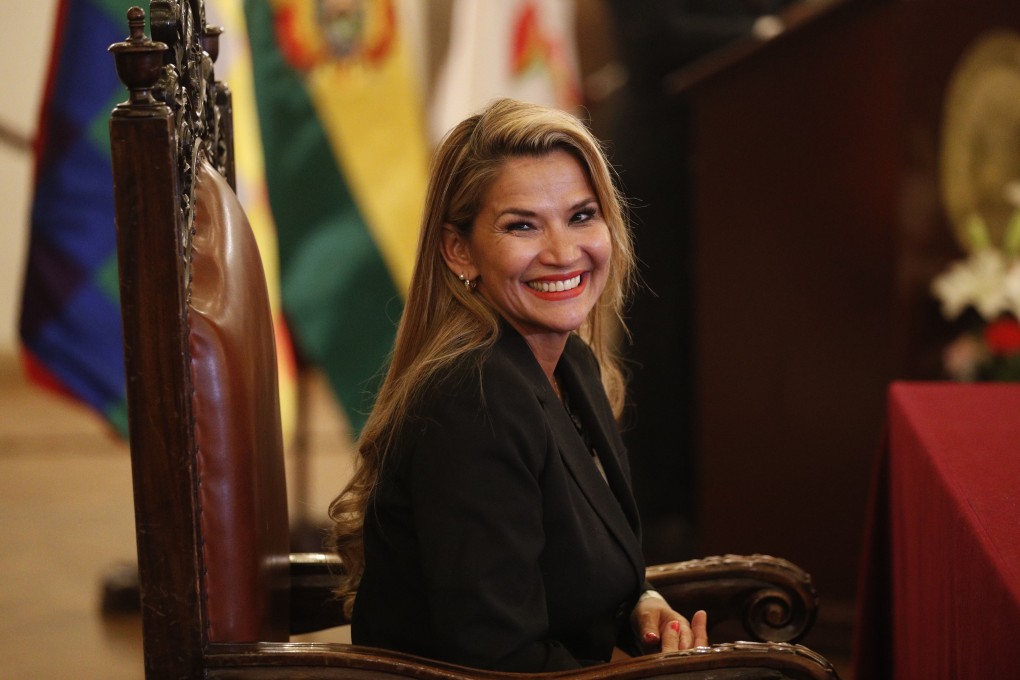Deadly clashes rock Bolivia after new interim president’s first day in office
- Evo Morales resigned on Sunday and later went into exile in Mexico
- US recognises Jeanine Anez as Bolivia’s interim president

Renewed clashes rocked Bolivia’s capital Wednesday as the woman who claimed the presidency, a second-tier lawmaker thrust into the post because of a power vacuum, faced challenges to her leadership from supporters of the ousted Evo Morales.
Opposition was also building in Congress, where lawmakers loyal to Morales were mounting a challenge to Anez’s legitimacy by trying to hold new sessions that would undermine her claim to the presidency.
The sessions – dismissed as invalid by Anez’s faction – added to the political uncertainty following the resignation of Morales, the nation’s first indigenous leader, after nearly 14 years in power.
In the streets, angry demonstrators tore off corrugated sheets of metal and wooden planks from construction sites to use as weapons, and some set off sticks of dynamite. Many flooded the streets of the capital and its sister city of El Alto, a Morales stronghold, waving the multicoloured indigenous flag and chanting: “Now, civil war!”

“We don’t want any dictators. This lady has stepped on us – that’s why we’re so mad," said Paulina Luchampe.